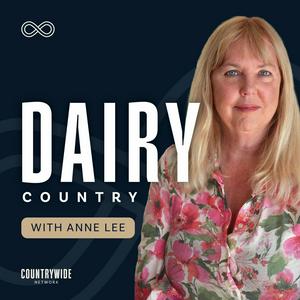In this special episode, Sarah sits down with Andrew MacPherson and Cara Sheridan to unpack the arrival of Bovillus Cryptium, a new vaccine for calves targeting cryptosporidiosis, and what it means for farmers managing calf health in New Zealand. The discussion sets the scene for why this vaccine is a game changer, how it can improve calf welfare and long-term performance, and why proactive planning with your vet is key to getting the most from it. With spring 2026 calving approaching, now is the time to understand how to integrate this new tool into your farm systems.
Host:
Sarah Perriam-Lampp, Editor-in-Chief, CountryWide
Guests:
Andrew MacPherson, Technical Advisor, MSD Animal Health
Cara Sheridan, Ruminant Technical Vet Manager, MSD Animal Health
Andrew MacPherson from MSD Animal Health New Zealand explains how the vaccine works by stimulating maternal antibodies for passive transfer to calves, reducing the risk of disease and improving growth outcomes. He outlines practical advice for farmers on administration timing, integrating the vaccine with existing protocols like Rotavac Corona, and the importance of planning early with their vets to maximise its benefits.
Cara Sheridan, MSD’s Ruminant Technical Vet Manager in Ireland, shares insights from the vaccine’s use in Ireland since mid-2024. She highlights the positive impact on calf health, reduced labour, and improved farm management, alongside the importance of quality colostrum and effective calf-rearing practices. Cara’s experience demonstrates how this preventive tool can reduce reliance on antibiotics while supporting animal welfare and performance, offering practical lessons for New Zealand farmers.
See omnystudio.com/listener for privacy information.


